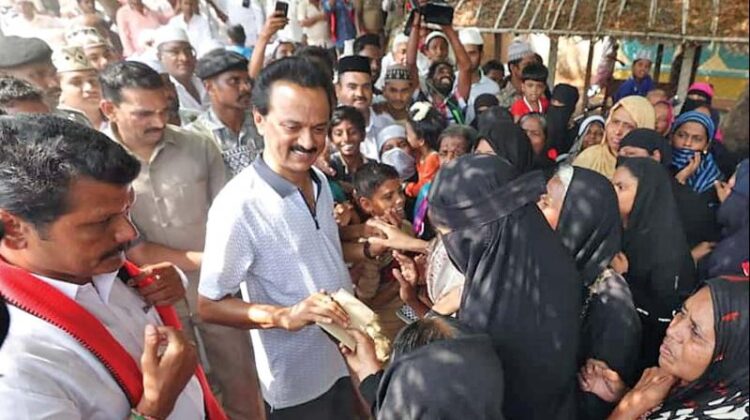In anticipation of the upcoming Lok Sabha elections, Tamil Nadu Chief Minister M K Stalin has pledged a series of concessions and promises aimed at securing the support of minority communities. Speaking at a meeting convened at the Secretariat to address minority concerns, Stalin assured the Muslim community of financial assistance for girls studying in grades one to eight, facilitated through the Waqf Board.
Stalin highlighted that the Union government had ceased financial aid to minority students in these grades during the 2022-23 period. He disclosed that he had personally written to the Prime Minister urging the reinstatement of the scheme. Consequently, the Tamil Nadu government plans to provide financial aid to economically disadvantaged Muslim girls in government and aided schools through the Waqf Board, benefiting approximately 1.26 lakh students.
Furthermore, Stalin announced an increase in education loans for minority students through cooperative banks to Rs. 5 lakh. Additionally, girls studying in government-aided minority schools from sixth to twelfth grade in Tamil medium will now be included under the Ptuhumai Penn scheme, receiving Rs. 1000 per month. The government also committed to removing expiry dates from religious minority certificates and granting permanent recognition to minority educational institutions.
Moreover, the government intends to extend the morning breakfast scheme to students in government-aided minority schools in rural areas. It also plans to streamline the issuance of legal heir certificates for individuals married under Islamic law and their offspring.
Addressing the premature release of Muslim prisoners, Stalin revealed that ten individuals had already been released, with the remaining eleven pending approval from Governor RN Ravi.
This move comes on the heels of a recent review meeting attended by Christian bishops and their associations, during which Stalin announced a series of measures aimed at appeasing minority communities. Stalin and his son have publicly declared their allegiance to the Christian community, emphasising their commitment to addressing their concerns.
Furthermore, the government reiterated its stance against the implementation of the Citizenship Amendment Act (CAA) in Tamil Nadu, affirming its commitment to upholding secular principles and communal harmony. The AIADMK, which previously supported the CAA, has since vowed to oppose its implementation, aligning with the DMK’s stance.
Critics have pointed out the perceived disparity in treatment between Hindus and minorities by the DMK government, citing its refusal to implement quotas for economically weaker sections among forward castes despite a Supreme Court ruling. Meanwhile, the AIADMK, under Edapadi K Palaniswamy’s leadership, has sought to position itself as a spokesperson for Muslim interests, attending conferences hosted by Muslim organisations and competing with the ruling DMK in announcing pro-minority measures.




















Comments